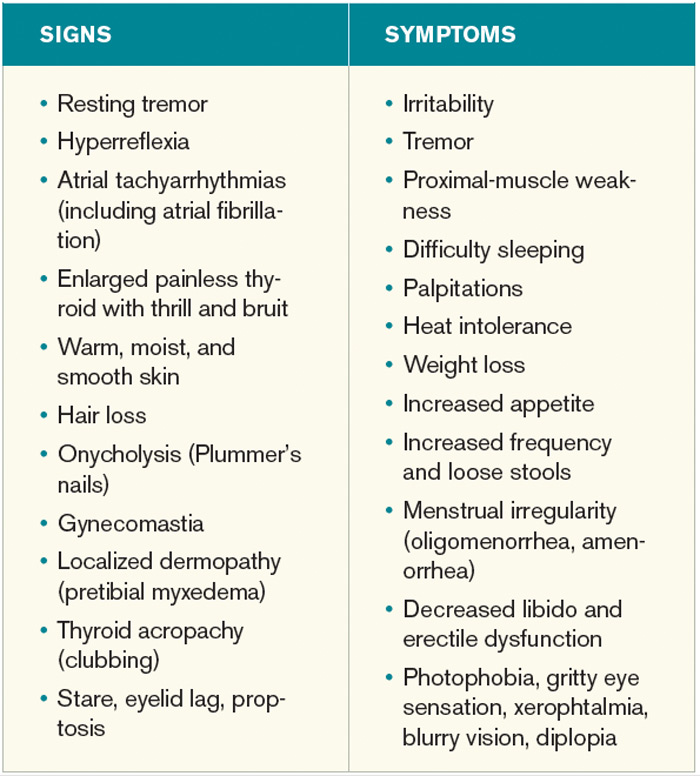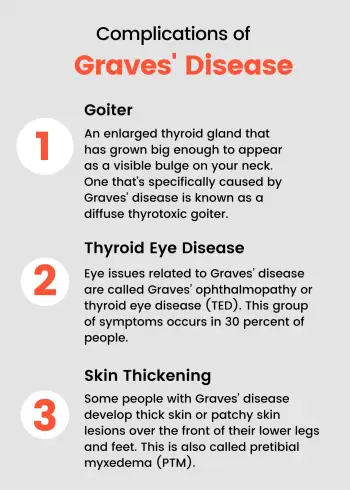108 Glen Osmond Road, Parkside

Graves' disease is an autoimmune disorder in which the body's immune system makes antibodies that stimulate the thyroid to produce too much thyroid hormone, resulting in hyperthyroidism. It is named after Robert Graves, an Irish physician, who described this form of hyperthyroidism about 150 years ago. It is 7-8 times more common in women than in men.
Alternative Names
Diffuse thyrotoxic goiter; Hyperthyroidism - Graves; Thyrotoxicosis - Graves; Exophthalmos - Graves; Ophthalmopathy - Graves; Exophthalmia - Graves; Exorbitism - Graves
Causes of Graves' Disease:-
Your immune system usually produces proteins known as antibodies in order to fight against foreign invaders like viruses and bacteria.
If you have an autoimmune disease like Graves’ disease, though, your immune system begins to fight against healthy tissues and cells in your body.
With Graves’ disease, instead of producing antibodies to target a specific invader, your immune system mistakenly produces thyroid-stimulating immunoglobulins. These antibodies then target your healthy thyroid cells.
Scientists know that people can inherit the ability to make antibodies against their healthy cells. But they have yet to find a clear cause of Graves’ disease or determine who will develop it.
A few different factors may affect your chance of developing Graves’ disease:-
1. Genetic factors: Certain genetic variations may increase a person's risk of Graves' disease.
2. Abnormal immune system activity: An abnormal immune system response may trigger the production of antibodies that stimulate the thyroid gland to produce too much hormone.
3. Radiation exposure: Exposure to radiation, such as X-rays or radiation therapy, may increase the risk of Graves' disease.
4. Stress: Prolonged periods of stress can lead to a weakened immune system, which may increase the risk of Graves' disease.
5. Certain medications: Some medications, such as antithyroid medication, lithium, and interferon, can trigger Graves' disease.
6. Pregnancy: In some cases, Graves' disease may be triggered by pregnancy.
7. Certain Viral Infections: Certain viruses, such as the Epstein-Barr virus, have been linked to Graves' disease.
Symptoms of Graves' Disease:-
Graves’ disease and hyperthyroidism share many of the same symptoms, like:-
1. Goiter (enlarged thyroid gland)
2. Weight loss
3. Fatigue
4. Heat sensitivity
5. Rapid heart rate
6. Sweating
7. Difficulty sleeping
8. Anxiety/nervousness
9. Increase in appetite
10. Irregular menstrual cycles
11. Bulging eyes (exophthalmos)
12. Enlarged lymph nodes
13. Irritability
14. Brittle hair and nails
15. Muscle weakness
16. Tremors
17. Changes in vision, such as double vision

How to Diagnose Graves' Disease:-
1. Visit your doctor and discuss your symptoms. Your doctor will likely perform a physical examination and order blood tests to evaluate the levels of thyroid hormones in your body.
2. Imaging tests such as an ultrasound or radioactive iodine uptake scan may be used to observe the size and shape of your thyroid gland and identify any abnormalities.
3. Your doctor may also measure the level of thyrotropin (TSH) in your blood to help diagnose Graves’ disease. TSH is a hormone produced by the pituitary gland that helps control the activity of the thyroid. A low TSH level is typically a sign of Graves’ disease.
4. After diagnosis, your doctor may refer you to an endocrinologist (a doctor who specializes in the treatment of conditions related to hormones) for further treatment. Treatment may include antithyroid medications, radioactive iodine, surgery, or a combination of treatments.

Ayurvedic herbal treatment for Graves’ Disease typically includes herbs such as Brahmi, Ashwagandha, Guggulu, Amalaki, Bala, and Pitta Balance. These herbs work to reduce the symptoms of Graves’ Disease, such as anxiety, fatigue, and heat intolerance. Additionally, herbs such as Punarnava, Manjishtha, and Turmeric can be used to reduce inflammation and boost the immune system. Diet and lifestyle modifications are also important components of an Ayurvedic treatment plan for Graves’ Disease. It is important to note that these herbs should not be taken in place of prescribed medications. It is best to CONSULT with an Ayurvedic practitioner or herbalist before taking any herbs for Graves' disease.
You can read more about Ayurvedic herbal treatment of Graves' Disease by clicking this link: READ MORE
Disclaimer : Sandeep Kumar and Anupam Vasudeva are not GP, they have Ayurveda medical degree from India where it is considered equal to any other medical degree. This qualification is recognized in Australia by vetassess governing body as Complementary Health Therapists. Life Line Ayurvedic Herbal Clinic does not claim to cure a disease or terminal illness and does not create any unreasonable expectation of beneficial treatment. Ayurvedic medicines and treatments are generally considered to be safe but rarely may be associated with possible adverse reactions in individual cases. We recommend seeking urgent medical attention in the case of an adverse reaction. This website provides you with information. You must contact your Ayurvedic or another health professional before you apply them. Read More